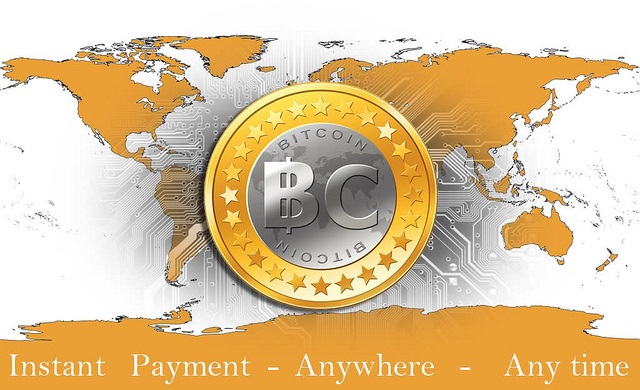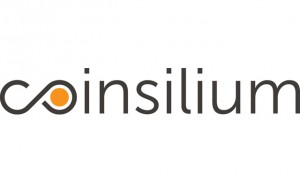At the beginning of the year, the UK Government’s Office for Science released a paper entitled ‘Distributed Ledger Technology: beyond blockchain.’

For many who heard the government’s chief scientist, Sir Mark Walport, discussing the report on BBC’s Radio Four, it might have felt liked they’d banged their heads and woken up a few years later to when a technology called blockchain was being adopted so widely that even the government were paying attention to it. But in reality this is still a relatively new technology that most people haven’t even heard of, yet right now the government, regulators and institutions want a look in.
First up, bitcoin.
We’ll mention bitcoins first as they’re the ones most people have at least heard of, compared to blockchain.
Bitcoins (generally written with a lowercase b) the cryptocurrency, are the digital assets (units of value) whose ownership transfers are recorded on the Bitcoin blockchain. At the time of writing there are over 640 cryptocurrencies, with a total market cap of $6.4bn. Of this, bitcoin accounts for $5.8bn. There are a number of blue-chip companies that currently accept bitcoin, including Microsoft, Dell, Expedia and PayPal.
Blockchain, link me up
So what is blockchain, how is bitcoin related to it, and have you been missing out?
Bitcoin (capital B) is the first application of blockchain technology; it is an immutable decentralised ledger that chronologically records the transfer of ownership of digital assets.
The Bitcoin Blockchain is the original blockchain, it is the protocol that enables and regulates the transfer of ownership of bitcoins over the internet.
Prior to the advent of blockchain technology, any digital asset, for example a data file, a music file or a picture could be shared and duplicated many times over, without limit and without record. What blockchain allows is for the movement of a digital asset to be recorded only once, so that it only belongs to one owner at a time.
The movement of the assets between wallets, the transaction, is recorded in a ‘block’ and once recorded it cannot be tampered with or deleted. Transaction data is chronologically recorded.
A blockchain is a distributed database with no single point of failure, as data is replicated throughout the network nodes. This model makes data highly resilient and available throughout the whole network substantially reducing the risk of denial of service (DoS) attacks.
More than one blockchain
The Bitcoin blockchain is not the only type of blockchain. Those who have read the coverage on blockchain technology and investments will have no doubt heard of Ethereum, for example. Whilst the bitcoin blockchain is now made up of thousands of nodes that together contribute to the security of the data it stores, you can also have private blockchains.
Some banks are learning from this and now developing their own private blockchains, this is akin to the intranet compared to the internet.
Blockchain, the new internet?
Blockchain is very often compared to the internet. This is multidimensional in terms of its intention.
Firstly in terms of its impact. The adoption of the internet signalled the birth of an age where we changed how we communicated, shared information, how we did business and even how we travel. We, and others investing resources in this space, see a similar pattern.
The use of blockchain technology will not only impact banks, as is the most popular cited solution, but also have major benefits for the unbanked. This is something at Coinsilium we are exploring closely as shown by our investments in the likes of Rootstock and Fuzo.
Blockchain technology is also changing how we store information – such as data for smart cities, as Factom is currently working on. Whatever you consider can be recorded on a database, can now be more securely recorded using blockchain technology.
The second point of comparison and similarity is in terms of investment. By the end of 2014 total VC investment for bitcoin and blockchain companies far exceeded the $250m invested in first-sequence Internet startups in 1995, by $112m (not adjusting for inflation). And, one year later the $786m total invested in this new space outstripped the $639m invested in the internet by 1996. Today total amounts invested in bitcoin and blockchain are close to $1bn; A huge amount given the age of the technology.
Those investing these significant figures today are the very same people we saw in the mid-1990s in internet investment. This brings us to the third point of comparison. Those pioneers of the internet days are pioneering blockchain investment. For example, Marc Andreessen, of Netscape, Jeff Skoll of eBay and Peter Thiel of PayPal. These were the big names getting involved prior to the banks (the banks only really started to talk openly about their interest in blockchain in the last year or so). Now, BBVA, Goldman Sachs, New York Stock Exchange, NASDAQ are just some of the banks and financial institutions getting on board. One of the reasons Coinsilium chose the ISDX for its IPO was because their interest in blockchain technology was clear.
Blockchain, more than a ‘thing’
One of the reasons the phrase blockchain has been touted around so much is because it has many applications and use-cases, it in itself is not a product. This is why at Coinsilium we are so interested in it. We see it having a transformational impact on many areas of business, government and society in a similar way to the Internet. However we also know that with each technological revolution comes a need for education, which we are also driving forward.
The government opened their paper with the following: The progress of mankind is marked by the rise of new technologies and the human ingenuity they unlock. And at the annual World Economic Forum, in Davos, which Coinsilium attended, this year’s topic was The Fourth Industrial Revolution with a feature mention for blockchain tech. We continue to be astounded by the possibilities blockchain technology can bring. One of our investees, SatoshiPay, is using this technology to develop a remarkable solution to monetise online content; whilst another investee is turning your phone into its very own payment terminal!
Blockchain is today’s example of how a new technology that has unlocked a number of potential solutions can also bring about entirely new ideas and services. It answers many of the issues that were discussed at Davos: digital identity, privacy, how to reach the unbanked and rebuilding trust in financial systems. We believe it is clear that blockchain is a driver of the fourth industrial revolution and we look forward to being a part of it.
Coinsilium is a blockchain technology investment and development company quoted on the ISDX market under ticker symbol COIN, to find out more about Coinsilium and the work we are doing visit www.coinsilium.com or email us at mailto:info@coinsilium.co

 Hot Features
Hot Features














